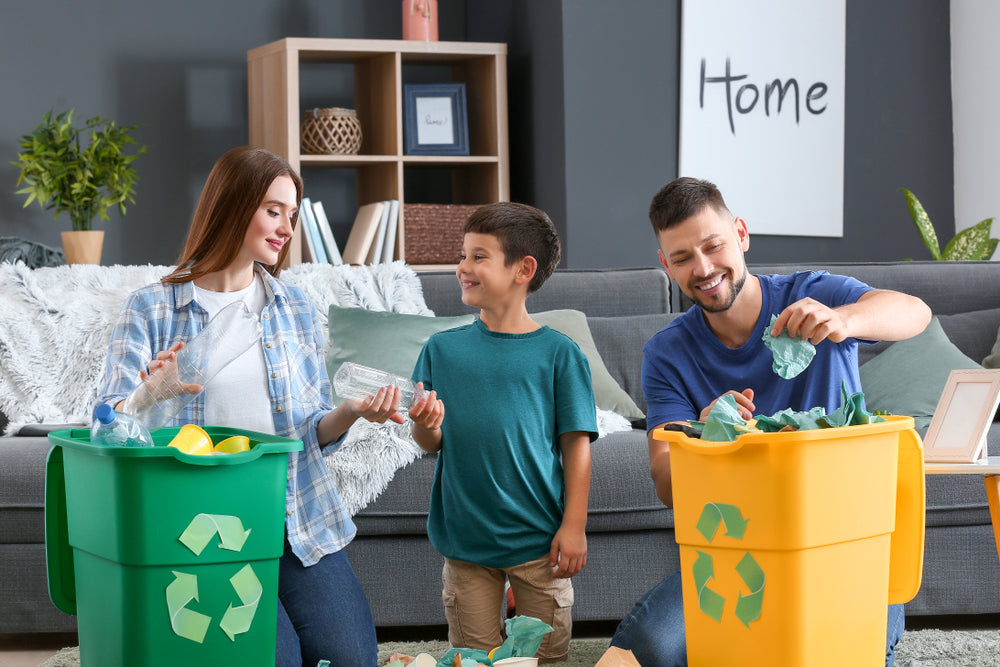Teaching Kids About Responsible Waste Disposal and Recycling: A Crucial Lesson for a Sustainable Future
Posted by Securr Blogger on
In a world increasingly grappling with environmental concerns, teaching children about responsible waste disposal and recycling is more critical than ever. Instilling these habits early not only fosters a sense of environmental stewardship but also equips them with the knowledge to contribute positively to their communities and the planet. Here’s a comprehensive guide on how to teach kids about responsible waste disposal and recycling.
Start with Education:
-
Understanding Waste: Begin by explaining to children what waste is and its impact on the environment. Use age-appropriate language and examples to illustrate how waste affects ecosystems, wildlife, and even human health.
-
The Three R's: Introduce the concept of "Reduce, Reuse, Recycle." Teach them that reducing consumption, reusing items, and recycling materials are effective ways to minimize waste and conserve resources.
-
Types of Waste: Teach children about different types of waste, including recyclables (such as paper, plastic, glass, and metal), organic waste (like food scraps and yard trimmings), and hazardous waste (such as batteries and electronics).
Lead by Example:
-
Practice What You Preach: Children often learn best by observing adults. Make sure to model responsible waste disposal habits in your daily life. Let them see you recycling, composting, and properly disposing of hazardous materials.
-
Involve Them in Household Practices: Encourage children to participate in waste management at home. Assign them tasks like sorting recyclables, composting organic waste, and reducing single-use items like plastic bags and bottles.
-
Visit Recycling Facilities: Take children on field trips to recycling centers or waste management facilities. Seeing the recycling process firsthand can help them better understand the importance of recycling and where their waste goes.
Make It Engaging:
-
Games and Activities: Make learning about waste disposal and recycling fun with games, puzzles, and activities. Create scavenger hunts to identify recyclable items around the house or neighborhood, or organize arts and crafts projects using recycled materials.
-
Outdoor Exploration: Spend time outdoors with children, exploring nature trails or parks. Use these opportunities to discuss the importance of preserving the environment and the impact of littering on wildlife and ecosystems.
-
Community Involvement: Get kids involved in community clean-up events or recycling drives. Working alongside neighbors and peers to clean up public spaces reinforces the importance of collective responsibility in waste management.
Empower Them:
-
Encourage Critical Thinking: Prompt children to think critically about their consumption habits and the environmental consequences of their choices. Encourage them to question packaging choices, opt for reusable alternatives, and advocate for sustainable practices.
-
Celebrate Progress: Acknowledge and celebrate children’s efforts in practicing responsible waste disposal and recycling. Offer praise and positive reinforcement to reinforce these behaviors and motivate them to continue making eco-friendly choices.
-
Lead Discussions: Engage children in discussions about environmental issues and solutions. Encourage them to share ideas for reducing waste, conserving resources, and promoting sustainability in their communities.
By teaching children about responsible waste disposal and recycling, we not only empower them to make environmentally conscious choices but also lay the foundation for a more sustainable future. Let’s equip the next generation with the knowledge and skills they need to protect our planet for generations to come.
For durable, reliable trash cans and recycling bins to support your waste management efforts, visit Trash-Cans.com or contact us at 888-671-7066 or via email at sales@securr.com.

